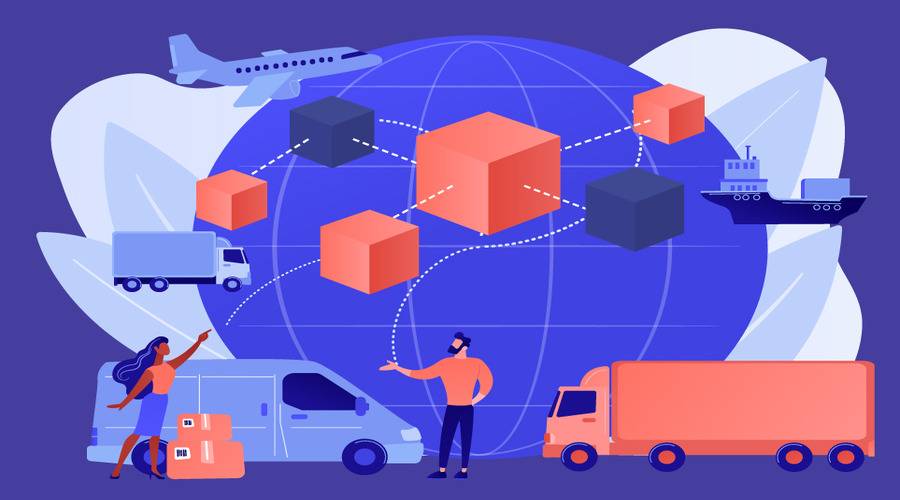In recent years, the sharing economy has transformed the way we access goods and services. Platforms like Uber, Lyft, and Airbnb have disrupted traditional industries by connecting individuals who have resources with those who need them. However, the sharing economy still faces challenges, such as trust and transparency issues. This is where blockchain technology comes into play. In this article, we will explore the impact of blockchain on decentralized transportation services in the sharing economy.
Understanding the Sharing Economy
The sharing economy refers to the economic system in which individuals share resources, such as goods, services, or property, with others. It enables peer-to-peer transactions facilitated by digital platforms, creating a decentralized network of providers and consumers. Sharing economy platforms have gained significant popularity due to their convenience, cost-effectiveness, and flexibility.
The sharing economy refers to an economic system where individuals share resources, such as goods, services, or property, with others. This concept has gained significant traction in recent years, driven by digital platforms that facilitate peer-to-peer transactions. In the sharing economy, individuals can access and utilize underutilized resources owned by others, creating a more efficient and cost-effective way of meeting their needs.
One of the key features of the sharing economy is the utilization of technology platforms that connect individuals who have resources with those who need them. These platforms provide a digital marketplace where individuals can offer or request services, rent out their properties, share rides, or lend items. This peer-to-peer model enables direct interactions between users, cutting out the need for traditional intermediaries.
The sharing economy offers several benefits, including increased resource utilization, cost savings, convenience, and environmental sustainability. It allows individuals to monetize their underutilized assets, provides flexible income opportunities, and promotes a sense of community and trust among participants.
Overall, the sharing economy represents a shift towards a more collaborative and efficient economic model, leveraging technology to connect individuals and optimize resource allocation.
The Role of Blockchain in Decentralization
Blockchain technology serves as a decentralized ledger that records and verifies transactions across multiple computers. It operates on a distributed network, ensuring transparency, immutability, and security. By leveraging blockchain, decentralized transportation services can overcome the limitations of traditional centralized systems.
Benefits of Blockchain in Transportation Services
Enhanced Security and Trust
Blockchain technology offers robust security measures, protecting sensitive information and preventing fraudulent activities. Each transaction on the blockchain is recorded in a block and linked to the previous one, creating an unalterable chain of data. This transparency and immutability build trust among users and reduce the risks associated with sharing personal data or making financial transactions.
Transparency and Accountability
Decentralized transportation services powered by blockchain enable transparent and accountable operations. Every action and transaction is recorded on the blockchain, ensuring that all parties involved can verify and validate the information. This transparency fosters trust among users and eliminates the need for intermediaries, reducing costs and increasing efficiency.
Smart Contracts for Efficient Transactions
Smart contracts are self-executing contracts with predefined rules encoded on the blockchain. They automatically execute transactions when specific conditions are met. In decentralized transportation services, smart contracts can automate processes like fare calculation, payment settlements, and dispute resolutions. This automation streamlines operations, reduces human errors, and enhances the overall user experience.

Challenges and Limitations of Blockchain in Transportation
- Scalability: Blockchain networks face challenges in handling a high volume of transactions, which can lead to delays and increased costs. The current infrastructure may not be able to handle the scale required for widespread adoption in transportation services.
- Regulatory Concerns: The regulatory landscape surrounding blockchain technology in transportation is still evolving. Compliance with existing regulations and the development of new frameworks pose challenges for the integration of blockchain into traditional transportation systems.
- Energy Consumption: Blockchain networks, particularly those utilizing proof-of-work consensus mechanisms, consume significant amounts of energy. The energy-intensive nature of blockchain raises concerns about the environmental impact and sustainability of implementing the technology in transportation services.
- Interoperability: Interoperability among different blockchain platforms and systems is a challenge. Transportation services often involve multiple stakeholders, and ensuring seamless integration and data exchange between various blockchain networks can be complex.
- Data Privacy and Protection: While blockchain technology offers transparency, protecting sensitive data and ensuring privacy can be challenging. Transportation services deal with personal and financial information, and maintaining the confidentiality and security of this data is crucial.
- User Adoption: Encouraging user adoption and trust in blockchain-based transportation services can be a hurdle. Educating users about the benefits and functionalities of blockchain, addressing concerns about data privacy and security, and providing user-friendly interfaces are essential for widespread acceptance.
- Cost Considerations: Implementing blockchain technology in transportation services may involve significant upfront costs, including infrastructure development, training, and integration. These costs need to be carefully evaluated against the potential benefits and return on investment.
- Governance and Consensus: Blockchain networks require consensus mechanisms to validate transactions and make decisions. Establishing effective governance models and achieving consensus among stakeholders in transportation services can be complex due to varying interests and regulatory requirements.
- Technological Maturity: Blockchain technology is still evolving, and its implementation in transportation services may require further advancements, standardization, and scalability solutions to overcome existing limitations.
- Human Factors: Adoption of blockchain in transportation services requires overcoming resistance to change, providing training and support for users, and addressing concerns about job displacement, which are essential factors to consider for successful implementation.
These challenges and limitations highlight the areas that need to be addressed to fully leverage the potential of blockchain in the transportation sector.
The Future of Decentralized Transportation Services
- Increased Efficiency: The future of decentralized transportation services powered by blockchain holds the promise of increased efficiency. Smart contracts and automated processes will streamline operations, reducing costs and improving overall efficiency. This will result in faster and more convenient transportation experiences for users.
- Enhanced User Experience: Blockchain’s transparency and security features will enhance trust and user experience. Users will have access to verified and tamper-proof information about drivers, vehicles, and routes, leading to a safer and more reliable transportation ecosystem. Additionally, decentralized platforms can offer personalized services tailored to individual preferences and needs.
- Expansion of Peer-to-Peer Networks: With blockchain, the future of decentralized transportation services will see the growth of peer-to-peer networks. Individuals will be able to directly interact and transact with each other, eliminating the need for intermediaries. This will not only reduce costs but also foster a sense of community and empowerment among users.
- Integration with Emerging Technologies: Decentralized transportation services will likely integrate with other emerging technologies such as artificial intelligence, Internet of Things (IoT), and autonomous vehicles. These synergies will further enhance the efficiency and capabilities of transportation systems, leading to safer and more sustainable mobility solutions.
- Seamless Multimodal Transportation: Blockchain can facilitate seamless integration between different modes of transportation, allowing users to effortlessly switch between public transportation, ridesharing, and other mobility services. This will promote efficient and sustainable multimodal transportation solutions, reducing congestion and optimizing resource utilization.
- Global Reach and Accessibility: Decentralized transportation services powered by blockchain can transcend geographical boundaries, enabling users to access transportation options worldwide. This global reach will provide greater accessibility to transportation services, particularly in underserved areas.
- Data-Driven Insights and Planning: Blockchain’s transparent and immutable nature generates a wealth of data. Analyzing this data can provide valuable insights for urban planning, infrastructure development, and traffic management. Data-driven decision-making will lead to more optimized and sustainable transportation systems.
- Collaborative Innovation: Decentralized transportation services will encourage collaboration and innovation among various stakeholders. Startups, established companies, and individuals can contribute to the development of new mobility solutions, fostering a dynamic and competitive market.
- Sustainable Transportation Solutions: Blockchain can facilitate the integration of renewable energy sources and incentivize sustainable transportation practices. This will contribute to reducing carbon emissions, promoting eco-friendly transportation options, and addressing environmental challenges.
- Democratization of Transportation: The future of decentralized transportation services will empower individuals by providing them with greater control over their mobility choices. Through blockchain, users can have direct access to transportation services, enabling a more democratic and inclusive transportation ecosystem.
These future prospects highlight the transformative potential of blockchain technology in decentralizing transportation services, paving the way for more efficient, user-centric, and sustainable mobility solutions.
Conclusion
Blockchain technology has the potential to revolutionize decentralized transportation services in the sharing economy. By providing enhanced security, transparency, and efficiency, blockchain enables trust and accountability in peer-to-peer transactions. While there are challenges to overcome, the future looks promising for decentralized transportation services powered by blockchain.
FAQs
1. How does blockchain improve trust in decentralized transportation services? Blockchain’s transparency and immutability ensure that all transactions and actions are recorded and verifiable, building trust among users.
2. Can blockchain solve scalability issues in transportation services? Scalability remains a challenge for blockchain networks, but ongoing research and development aim to address these limitations.
3. Are there any environmental concerns associated with blockchain technology? Yes, blockchain networks, especially those utilizing proof-of-work consensus mechanisms, consume significant amounts of energy. Efforts are being made to develop more energy-efficient alternatives.
4. Will blockchain eliminate the need for intermediaries in transportation services? Blockchain has the potential to reduce reliance on intermediaries by enabling peer-to-peer transactions, but certain regulatory and operational factors may still require some level of intermediary involvement.
5. What are the key benefits of smart contracts in transportation services? Smart contracts automate processes like fare calculation, payment settlements, and dispute resolutions, resulting in increased efficiency and improved user experience.
I’m a best-selling author and leading authority in the world of cryptocurrency. I have been involved in the crypto community since 2012 and have helped numerous startups and organizations on blockchain strategy. I am a regular contributor to Forbes and CoinDesk, and my work has been featured in The Wall Street Journal, Bloomberg, Reuters, and other major media outlets. In addition to writing for publications, I am also a sought-after speaker on cryptocurrency and blockchain technology niches respectively.




